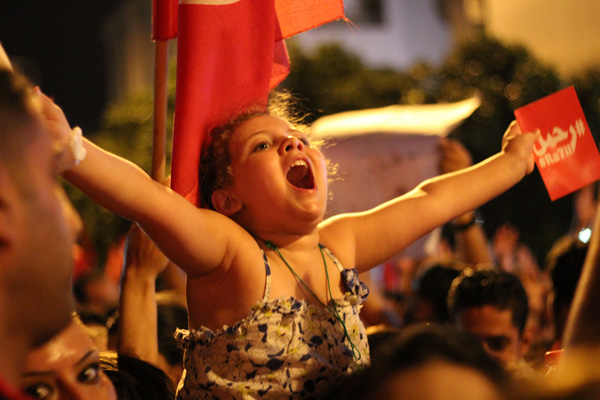
On the morning of October 9th 2015, I woke up to the news that the Tunisian National Dialogue Quartet won the Nobel Peace Prize. In a time when terrorism, political bickering and popular discontent were threatening the legacy of the Tunisian revolution, the Quartet stepped in and engineered a nationwide dialogue. It worked. Tunisia is far from perfect today. But it has duly earned its place in history as the first secular Arab democracy. That day around Cambridge, I carried the news with pride.
The next morning, I skimmed the headlines. It only took twenty-four hours for the news cycle to move on to something else. A bloody bombing killed at least 86 people in Turkey. Russian MiGs were still targeting Syrian rebels. Israeli soldiers killed 6 Palestinians in Gaza. The leader of Hamas praised the stabbing of Israelis by young Palestinians.
Spoiler alert, ladies and gentlemen. The Middle East is a bloody mess.
I understand. In global consciousness, our region of the world is associated with blood and violence. There’s no denying it is very much owning up to that reputation. But giving such little importance to this year’s Nobel Peace Prize is a grave disservice to history. Tunisian activists’ achievement holds great significance to us Arab millennials. Our generation was almost certain things could not get any better. We looked at a world of progress, technological advancement and interconnectedness. Yet many of us could barely see the fruits of it at home. In 2011, Tunisia proved us wrong.
It was a classic tale of human suffering. Humiliated, beaten by the police and prevented from making a living, a Tunisian street vendor set himself on fire. After he succumbed to his burns, his countrymen decided that enough was enough. Armed with their chants and smartphones, they occupied their country’s streets. Next thing you know, an Arab dictator chickens out and leaves everything behind. It was unheard of until then.
Other Arab countries picked up on that freedom frenzy, rather unsuccessfully. Egypt is an even worse military dictatorship. Syria is in the midst of a civil war. Yemen is quite the failed state. Libya barely fits the description of a nation. Morocco, Jordan, Saudi Arabia and other Arab monarchies absorbed the revolutionary momentum very cunningly. Word on the street is that this Arab Spring thing is not working out.
Not in Tunisia.
Given its exceptional ability to establish a secular constitution, guarantee gender equality, implement representative government and protect freedom of conscience, Tunisia is spoken of as the Arab exception. But I can’t accept that. I reject the premise that Tunisia can’t be the norm. It has to be. If democratization is working over there, then the rest of us Arabs have no excuse whatsoever. Every now and then, I would attend a talk or a conference where a self-proclaimed Middle East expert would use the expression “so-called Arab Spring.” Fumes would almost come out of my ears. The peaceful toppling of ruthless despots is my generation’s crowning achievement. You can’t take this away from us. At the end of the day, success stories like Tunisia are all we have. It is what sustains our hopes.
Analyzing the Arab Spring from the outside as a failure is tantamount to silencing the oppressed voices in the Middle East. It deprives them of a global standing they are so desperately in need for. It reduces their legitimate struggles to a game of geopolitics in which anything goes. Of course Syria and Libya were better off before their revolutions than they are now, who could even refute that? Yet that is not the point. Even then they were brutal dictatorships where disagreement was cruelly punished. Surely climbing up the ladder of democracy and rule of law from there should take some time. At least more than the four years many Western analysts are using to deem the Arab Spring a failure.
The world has in myriad ways tried to “fix” the Arab world and failed. You cannot bomb your way to our hearts and minds. You cannot pick and choose allies in the region based on what’s most convenient to you. You cannot patronize a whole culture by claiming that it is not ready for democracy. But you can support the aspirations of Arab democrats. Just like the Nobel Prize committee did a week ago. And if you can’t, it’s fine. Just get out of the way. We’ll figure it out eventually.
Right, Tunisia?
